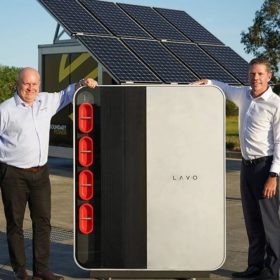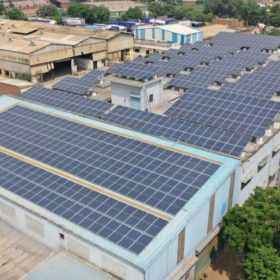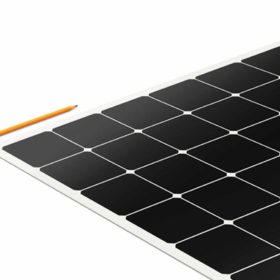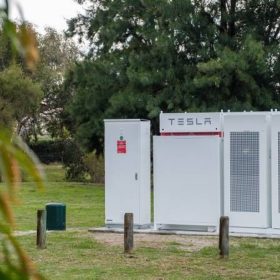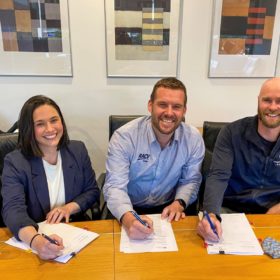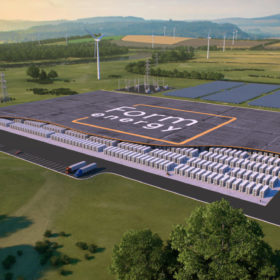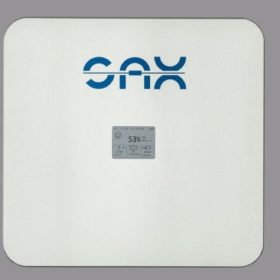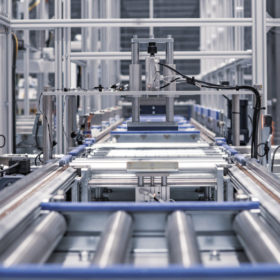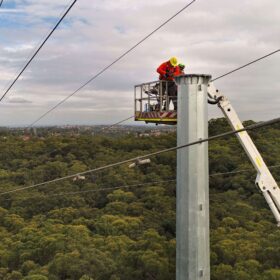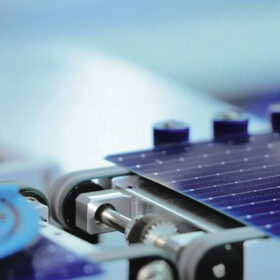Partnership to explore hydrogen technology in standalone systems
Standalone power system specialist Boundary Power has teamed up with Australian hydrogen technology company LAVO to investigate the potential application of its renewable hydrogen energy storage system in power solutions suitable for off-grid and edge-of-grid customers.
Commercial and industrial rooftops in India could deploy 1,875 MW of solar in 2021
According to a new report, India’s commercial and industrial sectors will increase their rooftop solar deployments by 47% year-on-year, with bifacials and large-size high-wattage modules offering cost-effective support for reducing electricity costs.
‘Stick-on’ solar panels in France secure EU funding
The TotalEnergies-controlled solar manufacturer will secure an, as yet undetermined chunk of a new €118.6 million low-carbon innovation fund to start producing its frameless, glass-free solar roofing products at Porcelette, in northeastern France.
Aussie startup invents breakthrough non-toxic battery electrolyte that’s cheaper ‘by factor of 100’
It’s a breakthrough so staggeringly simple the patent office needed convincing it counted as an invention. In what Professor Thomas Nann jokingly told pv magazine Australia basically equates to adding dishwashing liquid and oil to water, he and two of his former PhD students have unlocked the potential of water-based electrolytes for batteries, promising a solution that is cheaper, easier to manufacture and non-toxic. The startup plans to initially use the formula in supercapacitors before exploring it in conjunction with redox flow batteries.
Queensland energy survey reveals shifts in battery and EV embrace coupled with continued love of solar
Households with residential batteries have doubled in Queensland in the last two years, though cost remains a barrier – as it has with electric vehicles. As prices fall, however, the state is likely to welcome the technology with open arms, as it has with solar. 37% of Queensland households now harvest the sun’s energy and a further 22% looking to install or upgrade their systems, according to the government’s Queensland Household Energy Survey. Of those with solar systems, 93% would would replace their panels with the same size or larger, if they were to fail.
Melbourne council plans city-wide community battery network
The City of Melbourne is planning a network of co-ordinated community batteries to be installed at council sites across the city, aiming for a potential capacity of 5 MW by 2024.
RACV Solar adds another installation company to its stable
Victorian solar company RACV Solar has continued its expansion strategy with the acquisition of Great Ocean Solar and Electrical, a solar and battery installation business based on the Bellarine Peninsula in the state’s southwest.
Multi-day iron-air batteries reach commercialization… at one tenth of the cost of lithium
Boston startup Form Energy has secured US$200 million (AU$270 million) Series D funding for the development of what is being called a breakthrough in energy storage.
German start-up offers 5.2 kWh AC battery that works without inverter
Sax Power has developed a new residential battery which it describes as a game-changer in the battery technology.
Sunday read: Europe’s gigafactory boom – 25 by ‘25
A gigafactory, as the name indicates, is a facility that aims to produce Li-ion cells at a gigawatt-hours scale of total capacity, so they can then be used in electric vehicles or stationary storage applications. The global production capacity of Li-ion cells is expected to reach 740 GWh by the end of 2021 – almost a threefold increase from 2017 – and Europe will account for 8% of the total. João Coelho, an analyst at Delta-EE, looks at how Europe plans to catch up.
